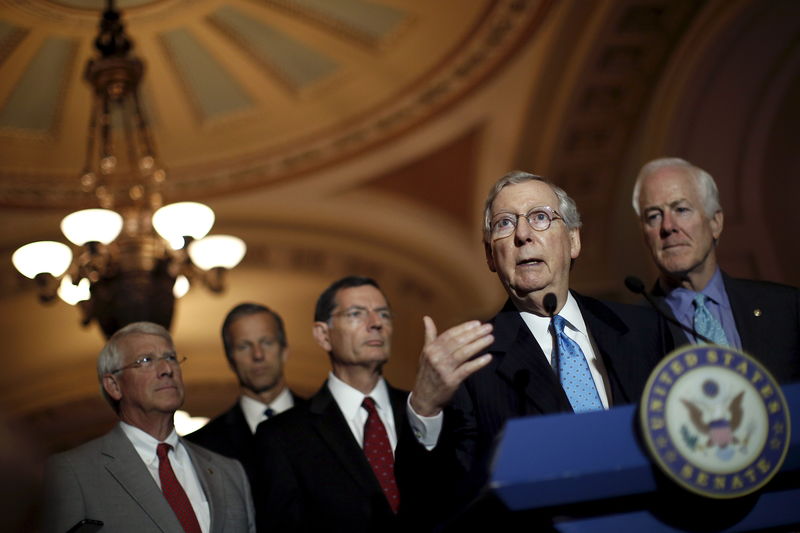WASHINGTON (Reuters) - U.S. Senate Majority Leader Mitch McConnell on Thursday rejected President Barack Obama's pitch for the Iran nuclear deal, saying it was "absurd" to argue that lawmakers must essentially choose between the agreement or going to war.
Obama made a "huge mistake" with that argument, McConnell, a Republican, told reporters in response to a speech by Obama on Wednesday.
"It's not this deal versus war. That's the argument they've been making during the whole negotiation. It's either this deal or a better deal, or more sanctions."
Obama defended the July 14 U.S.-led international deal against a furious lobbying effort by political opponents and Israel, and said abandoning the agreement would open up the prospect of war.
The president said if the Republican-controlled Congress blocked the deal, it would accelerate Tehran's path to a nuclear bomb.
"Let's not mince words. The choice we face is ultimately between diplomacy or some form of war. Maybe not tomorrow, maybe not three months from now, but soon," Obama, a Democrat, said.
But McConnell was not buying it. "That's an absurd argument," he said.
Obama's speech was part of a push to promote the accord negotiated over 18 months between Iran and six world powers. The six agreed to lift economic sanctions on Iran in return for curbs on its nuclear program, which Tehran said was for peaceful energy purposes only.
Opponents of the agreement have said the deal does not go far enough to ensure Iran will never be able to develop a nuclear weapon. They have cited the length of time between notifications and inspections by the International Atomic Energy Agency and their objections to doing anything that might help Iran because of its backing for Islamist militant groups.
Obama urgently needs his fellow Democrats' support in Congress, but only a few dozen have come out so far as strongly in favor.
The White House has pressured Congress to support the deal as lawmakers head home for an August recess. Congress has until Sept. 17 to vote on it.
A resolution rejecting it would cripple the agreement by eliminating Obama's ability to waive many sanctions - if the resolution survives a presidential veto.

Senate leaders have agreed to start the Iran debate as soon as they return to Washington on Sept. 8. McConnell said the Senate would deal with the issue "with dignity and respect," but he was very critical of what he called the president's "incendiary rhetoric" on Iran.